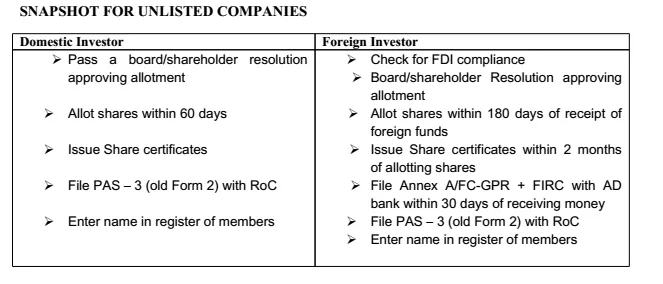Domestic and Foreign Funding - Ready Reckoner for Entrepreneurs
At a time when the level of early stage and venture capital investments is seeing a reported 40% growth, the time is most opportune to discuss the requisite regulations that companies need to comply with while receiving funding from domestic and foreign investors.
The regulations that govern investments are a function of the funding source (i.e, domestic or foreign) and the nature of investment, i.e., equity or debt.

As regards foreign investment, it needs to comply with Reserve Bank of India regulations and the Foreign Exchange Management Act. Ensure first off that the Investment complies with the foreign direct investment (FDI) rules. As a practice, foreign investors may sometimes require a legal opinion certifying that the investment is FDI complaint as a condition precedent to the investment. The consolidated FDI circular issued by the Department of Industrial Policy and Promotion in the month of April each year details the level of FDI permissible in various sectors.
As regards other investments and rules for issuance of securities, the Companies Act (and the corresponding rules) is the necessary guidebook that governs any investment. The Articles of Association also governs issue of such securities. (Say a company is considering issuing shares with differential voting rights, this must be approved in the AoA. The type of resolution (i.e, board or shareholder) is dependent on when the company is issuing shares.)
The Companies (Share Capital and Debentures) Rules, 2014, sets out a detailed procedure for the issue of shares and debentures. When debentures are being issued by the company, the date of redemption of secured debentures cannot exceed ten years from date of issue. The rules also state the details that need to be included in the explanatory statement to the general meeting.

In cases where the investment results in substantive changes, either more restrictive than what is provided for in the Articles of Association of a Company from a company’s viewpoint, or maybe essential from an investor viewpoint, the AoA may be amended upon an agreement from all the members. For this, the Company needs to pass a special resolution and file MGT-14 (old Form 23) along with extract of the resolution.
Reality check: Most companies neglect the importance of the corporate secretarial record maintenance like registers etc. However companies should note that as minute or as secretarial as they may seem, investors largely look into compliances of the company since its inception as that gives an assurance that it has been transparent and compliant in its functioning. Corporate Governance is the new norm for basic company hygiene.











